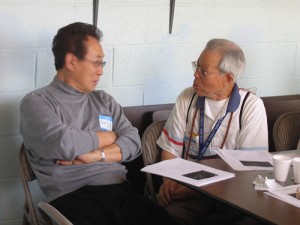 In the previous post, (Building Trust with Your Customers Helps You Reach Your Goals Faster-1), I talked about benefits of building trust.
In the previous post, (Building Trust with Your Customers Helps You Reach Your Goals Faster-1), I talked about benefits of building trust.
Elements of trust
Everyone wants to be trusted – especially sales persons and consultants. You want your customer to come and listen to you. However, not many achieve in being trusted. I was amazed when I read a book called “Trusted Advisor ” (affiliate link – p2w2 gets paid if you buy), I realized that there is a pattern of behavior that helps generate more trust in your relationships.
” (affiliate link – p2w2 gets paid if you buy), I realized that there is a pattern of behavior that helps generate more trust in your relationships.
If you look at page 4 (using “look inside” feature of Amazon) you will see “traits that our trusted advisors have in common.” In that, I like the following:
– They are consistent (we can depend on them)
– Help us think things through (we make the decision, they don’t force their recommendation on us)
– They stay calm
– Are reliably on our side and always seem to have our interests at heart
– We can rely on them to tell us the truth
Who do YOU trust?

Take for example, a car dealer. Which dealer do you trust? It’s likely that you the person:
• Is pleasant and polite to you
• Asked for your needs and heard you patiently
• Empathized with your need
• Respected your time and attended to you promptly
• Understood your need
• Gave all the options you have
• Let you make the decision
• Follow up and deliver on all the promises
Trust is a natural outcome when they know that you keep their interests in mind.
Trust gets generated from experience; not testimonials
No matter how good a marketing material you can generate, it can never generate trust. At best, a customer can try you. But she will start trusting you only after trying out your product or service and after she is satisfied.
Before we close…
Log on to Trust Quotient self-assessment quiz. I recommend this quiz because that tells you where you stand on the trust question. Here are some of
the questions it asks (you have to select between Never, Rarely, Often, Almost Always and Always):
1. My word is my bond (I keep and deliver on my promises; I see keeping my word as a matter of personal integrity)
2. I work to make sure there are no surprises when I’m around
3. People tell me me I’m honest and open
4. I am consistent and predictable
5. People confide in me (they tell me things they often don’t tell others)
You might actually learn many traits that you love and give you ideas to enhance others’ trust in you.
This quiz computes your trust quotient (TQ). With this quiz you can do your own assessment of your credibility, reliability, intimacy, and self-orientation. The quiz, based on the work of Charles H. Green, who defines TQ as:

Where:
TQ = Trust Quotient (trustworthiness)
C = Credibility
R = Reliability
I = Intimacy
S = Self-orientation
Remember that can be a fabulous economic strategy—the strategy for our times.
But if your only reason for winning trust is to make money off others, nobody is going to trust you.
That’s the paradox of this trust thingy.
If you’d like to know more about the “T’ Factor in a business relationship, I would recommend that you begin by reading by David H. Maister and Charles H. Green’s Trusted Advisor .
.
About the author: Chaitanya Sagar is an expert in small businesses and is the CEO of www.p2w2.com, an online marketplace for services like writing, business consulting, research, software, online-tutoring etc. You can find good service providers and collaborate with them on p2w2.

Picture credits: Mijita Janielianne hbp_pix










